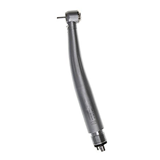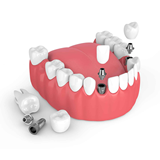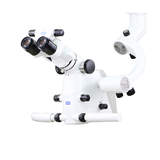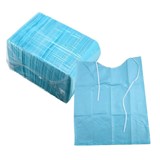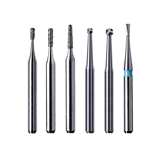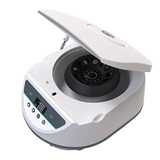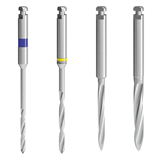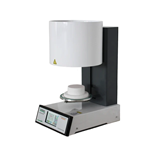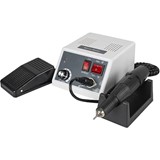Find the best dental milling machines in Australia. Get insights on prices, types, materials, and financing to make the right choice for your practice.
Key Takeaways
- Price Range: Dental milling machines in Australia range from $25,000 to $180,000, depending on the number of axes, speed, precision, and automation level.
- Types: Machines are typically 4-axis or 5-axis, with 5-axis offering greater flexibility for complex restorations.
- Applications: Ideal for milling crowns, bridges, dentures, abutments, and full arch restorations.
- Materials: Machines mill zirconia, PMMA, wax, composite resins, titanium, and glass ceramics.
- Maintenance Costs: Expect annual upkeep between $2,000 and $5,000, including calibration, tooling, and filter changes.
- Financing Options: Lease or equipment finance agreements are available with rates from 6% to 9% p.a., often covering 100% of purchase cost.
- Compliance: Must meet TGA and ARTG regulations, and follow ISO 13485 quality standards for medical devices.
Introduction
Dental milling machines have become a cornerstone of modern dentistry, especially with the rise of digital workflows. These machines enable in-house fabrication of crowns, bridges, and implants with speed and accuracy, reducing turnaround time and increasing control over quality.
If you're a dental practice or lab in Australia looking to purchase a dental milling machine, this guide will walk you through everything you need to know—from pricing and machine types to financing, compliance, and more.
Types of Dental Milling Machines
4-Axis Milling Machines
- Best For: Simple restorations like crowns and bridges.
- Features: Basic automation, lower cost, ideal for zirconia and PMMA.
5-Axis Milling Machines
- Best For: Complex restorations such as implant bars and full arch bridges.
- Features: Greater precision, flexibility, and ability to create undercuts.
Hybrid Milling Machines (Wet and Dry)
- Best For: Versatile milling of materials like zirconia, titanium, and glass ceramics.
- Features: Wet and dry capabilities, automatic material changers.
Metal Milling Machines
- Best For: Milling custom abutments, crowns, and bridges from metal alloys.
- Features: Advanced spindles and cooling systems for metal materials.
Dental Milling Machine Prices in Australia
Dental milling machine prices in Australia vary widely depending on features, brand, automation, and capabilities. Here's what you can expect:
- Entry-Level Machines: Starting from $25,000 to $45,000, these 4-axis machines are suitable for small labs or practices focusing on basic restorations like crowns and inlays.
- Mid-Range Machines: Priced between $45,000 to $90,000, these typically offer 5-axis functionality, faster spindle speeds, and automatic tool changers—ideal for medium to high-volume practices.
- High-End Machines: Ranging from $90,000 to $180,000, these machines offer full automation, wet/dry milling capabilities, multi-material disc changers, and high-volume production potential.
When budgeting, remember to factor in:
- Installation & Training: Can add $3,000–$8,000.
- Software Packages: Expect to pay $1,500–$5,000 depending on licence and modules included.
- Ongoing Support & Maintenance Packages: May add $2,000–$5,000 annually, depending on your service agreement and usage.
Prices may also vary by supplier, exchange rate, and available financing bundles, so it's worth comparing offers from local authorised distributors.
Materials Supported
Most dental milling machines support the following materials:
- Zirconia
- PMMA (Polymethyl methacrylate)
- Wax
- Glass ceramics (e.g., lithium disilicate)
- Composite resins
- Titanium (on select machines only)
Operation and Workflow
Dental milling machines work in conjunction with CAD/CAM systems. The process typically includes:
- Scanning the patient’s oral anatomy using an intraoral scanner.
- Designing the restoration using CAD software.
- Milling the design using CAM software and the milling unit.
- Post-processing: sintering, polishing, glazing, or finishing.
Automation features such as automatic tool changers and material loaders enhance efficiency and reduce manual labour.
Maintenance and Consumables
Routine maintenance keeps your machine precise and compliant:
- Filter and spindle maintenance every 3–6 months
- Tooling replacement based on material usage (budget $1,000–$3,000 annually)
- Calibration services every 6–12 months ($500–$1,000/service)
Annual maintenance costs usually sit between $2,000 and $5,000.
Parts and Software
Key Parts Include:
- Spindle motor
- Tool holder
- Axis drive motors
- Milling burs and cooling units
Software Licences:
- Most machines come bundled with proprietary CAM software.
- Expect renewal or upgrade fees every 1–3 years (from $500–$2,000 depending on software).
Financing Options
Australian dental practices often finance machines to preserve cash flow. Common options include:
- Equipment Leasing: Fixed monthly payments, optional buyout at lease end.
- Chattel Mortgage: Own the asset from day one, claim tax deductions.
- Vendor Finance: Some suppliers offer in-house or partnered finance.
Warranty and Support
- Standard Warranty: Usually 12–24 months, covering parts and labour.
- Extended Warranties: Offered by most brands (up to 5 years).
- Support Inclusions: Remote diagnostics, on-site visits, software updates.
Compliance and Certification in Australia
To legally operate a dental milling machine in Australia:
- TGA Registration: The machine must be listed on the ARTG (Australian Register of Therapeutic Goods).
- ISO Certification: ISO 13485 compliance is required for devices used in the fabrication of Class IIa restorations.
- WHS Compliance: Machines should meet AS/NZS 60335 and be operated with proper extraction systems.
- Training & Documentation: Ensure your staff receive training and have access to machine SOPs and safety documentation.
Common Questions from Dental Milling Machine Buyers
Q1: How long does a dental milling machine last?
- With proper maintenance, machines last 8–12 years.
Q2: Can I mill titanium in-house?
- Only with select high-end machines that are wet-capable and specifically designed for titanium (e.g., CORiTEC 650i).
Q3: How many restorations can I mill per day?
- Depending on material and machine speed, 20–50 units/day is typical.
Q4: Do I need a wet or dry milling machine?
- Wet is best for glass ceramics and titanium. Dry is standard for zirconia and PMMA. Some machines offer hybrid (wet/dry) functionality.
Q5: Are there government incentives for purchasing dental CAD/CAM equipment?
- You may be eligible for instant asset write-offs or small business investment tax breaks. Check with your accountant or the ATO.
Final Thoughts
Investing in a dental milling machine is a major decision, but it can significantly elevate your in-house capabilities, turnaround times, and patient satisfaction. By choosing the right type, understanding costs, planning for compliance, and ensuring ongoing support, you’ll be setting your practice or lab up for long-term digital success.
Need help finding the right dental milling machine supplier or financing partner in Australia? Let us know—we’re happy to connect you with trusted local options.



